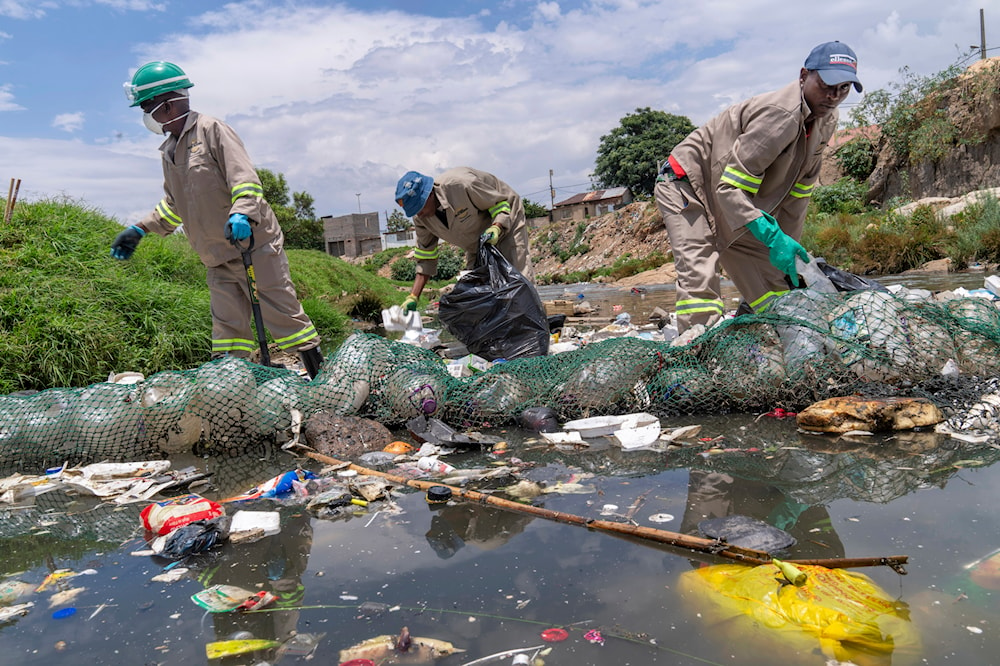UN warns of climate-driven health crisis for aging populations
From toxic floods to ancient microbes, UNEP warns that climate change is exposing older adults to layered health risks.
-

Alexandra Water Warriors volunteers clean up the Juksei river in the heart of Alexandra township from plastic pollution in Johannesburg, South Africa, Nov. 27, 2024 (AP)
The United Nations Environment Programme (UNEP) has issued an urgent warning about the growing health threats climate change poses to aging populations, particularly from extreme heat and environmental degradation. In its newly released Frontiers 2025 report, UNEP stresses that older adults face disproportionate risks as the planet continues to warm and extreme weather events become more frequent and intense.
“Heat waves are among the most frequent and deadly impacts of climate change, along with floods and shrinking ice cover,” said UNEP Executive Director Inger Andersen. “We must be prepared for the risks these impacts pose, especially for society’s most vulnerable, including older persons.”
The report highlights that heat-related mortality among people aged 65 and older has soared by 85% since the 1990s, with the burden falling especially hard on low- and middle-income countries. Older adults living in densely populated urban environments, those with chronic illnesses, and individuals with limited mobility are particularly at risk.
Beyond heat, seniors are also increasingly exposed to deteriorating air quality, coastal flooding, and rising food insecurity, all of which exacerbate existing health challenges.
Cities, infrastructure, and policy must adapt
To address these growing threats, UNEP is calling for the transformation of urban spaces into greener, more accessible environments, along with improved emergency preparedness and wider access to localized climate data. The report also welcomed the UN Human Rights Council’s recent move to begin drafting a legally binding treaty on the rights of older persons, recognizing the need for legal protections as climate impacts intensify.
The Frontiers 2025 report also warns of a wide range of secondary climate risks. Melting glaciers, for example, may expose ancient microbes, heightening concerns about antimicrobial resistance and the potential for new or re-emerging diseases.
A temperature rise beyond 2°C could dramatically reduce the Earth’s frozen zones, threatening water supplies, livelihoods, and ecosystems for hundreds of millions of people.
Meanwhile, increased flooding risks are unleashing toxic and banned chemicals long trapped in sediments, potentially contaminating food and water systems. UNEP recommends expanded chemical monitoring, investment in nature-based flood barriers, and the modernization of urban drainage infrastructure to prevent future crises.
Aging infrastructure poses public safety risks
The report also underscores the growing danger of aging dams and other outdated infrastructure in a changing climate. UNEP recommends the removal or retrofitting of obsolete dams as a strategy to restore river ecosystems and improve public safety amid shifting hydrological patterns.
With the global population aging and climate impacts accelerating, UNEP’s report serves as a call to governments, city planners, and the international community to integrate senior health protection into climate resilience strategies.
“The impacts of climate change are not only environmental but deeply social,” Andersen noted. “Older adults must be included in climate action plans, not as an afterthought, but as a priority.”

 3 Min Read
3 Min Read









